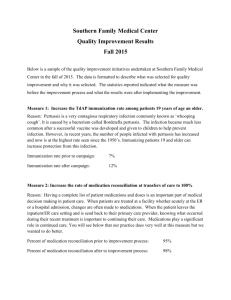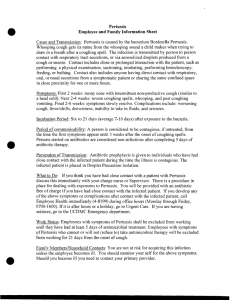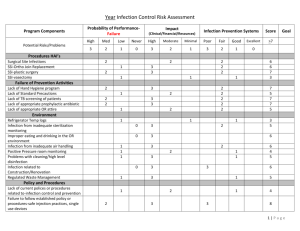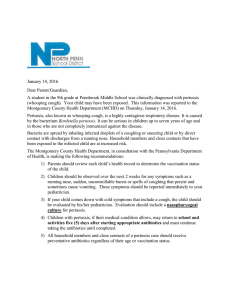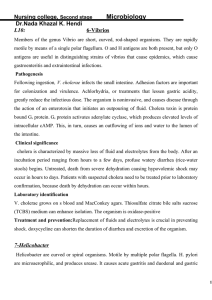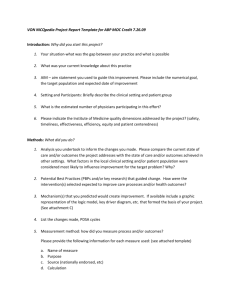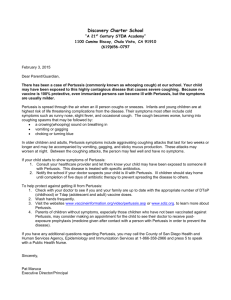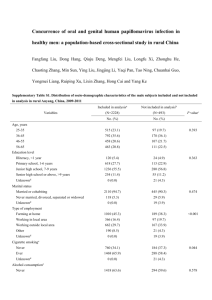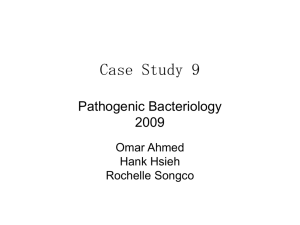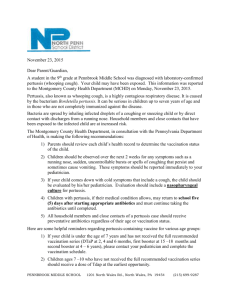Adolescent Communicable Disease Prevention
advertisement
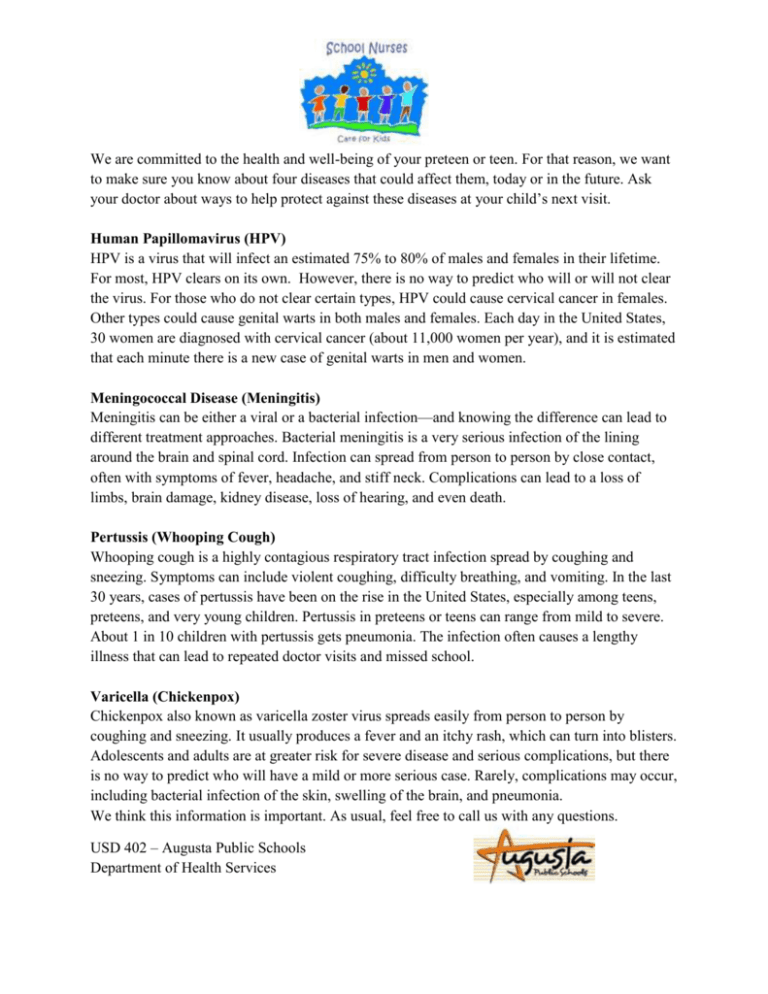
We are committed to the health and well-being of your preteen or teen. For that reason, we want to make sure you know about four diseases that could affect them, today or in the future. Ask your doctor about ways to help protect against these diseases at your child’s next visit. Human Papillomavirus (HPV) HPV is a virus that will infect an estimated 75% to 80% of males and females in their lifetime. For most, HPV clears on its own. However, there is no way to predict who will or will not clear the virus. For those who do not clear certain types, HPV could cause cervical cancer in females. Other types could cause genital warts in both males and females. Each day in the United States, 30 women are diagnosed with cervical cancer (about 11,000 women per year), and it is estimated that each minute there is a new case of genital warts in men and women. Meningococcal Disease (Meningitis) Meningitis can be either a viral or a bacterial infection—and knowing the difference can lead to different treatment approaches. Bacterial meningitis is a very serious infection of the lining around the brain and spinal cord. Infection can spread from person to person by close contact, often with symptoms of fever, headache, and stiff neck. Complications can lead to a loss of limbs, brain damage, kidney disease, loss of hearing, and even death. Pertussis (Whooping Cough) Whooping cough is a highly contagious respiratory tract infection spread by coughing and sneezing. Symptoms can include violent coughing, difficulty breathing, and vomiting. In the last 30 years, cases of pertussis have been on the rise in the United States, especially among teens, preteens, and very young children. Pertussis in preteens or teens can range from mild to severe. About 1 in 10 children with pertussis gets pneumonia. The infection often causes a lengthy illness that can lead to repeated doctor visits and missed school. Varicella (Chickenpox) Chickenpox also known as varicella zoster virus spreads easily from person to person by coughing and sneezing. It usually produces a fever and an itchy rash, which can turn into blisters. Adolescents and adults are at greater risk for severe disease and serious complications, but there is no way to predict who will have a mild or more serious case. Rarely, complications may occur, including bacterial infection of the skin, swelling of the brain, and pneumonia. We think this information is important. As usual, feel free to call us with any questions. USD 402 – Augusta Public Schools Department of Health Services
